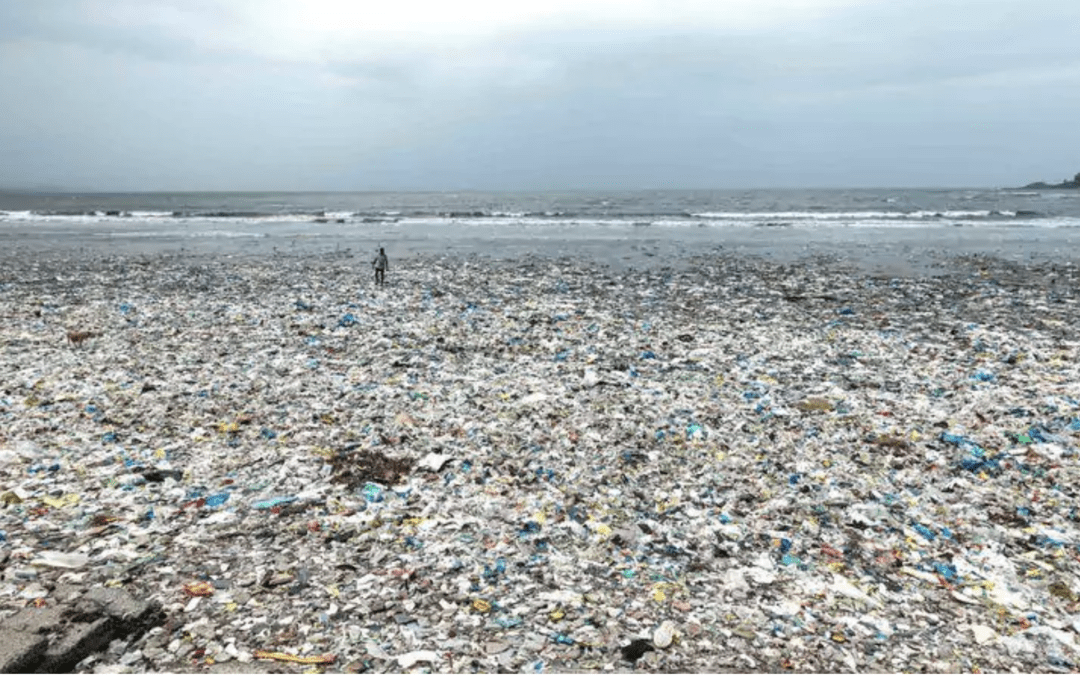It is not a secret that our planet is asphyxiating with the millions of tons of plastic that we humans produce and is being discarded every day. Costa Rica’s single-use plastic ban has come to challenge the rest of the world and demonstrate that it is possible to live without plastic.
Single-use plastic
Every minute the equivalent of a garbage truck full of plastic goes into our oceans. This means that per year more than 10 million tons of plastic are polluting the deep-sea. For some people, these numbers mean something but for some, it is just a figure that does not affect them. They could not be more wrong.
The plastic contamination has a direct and indirect effect on our life. According to a study conducted by Orb Media, eight out of ten samples of drinking water collected in 159 countries around the world, including US, India and Ecuador and many other in all 5 continents, contain microscopic plastic fibers. So, every time you open your kitchen tap to clean the vegetables, or drink tap water or wash your teeth, you are eating plastic particles that transfer toxic substances to your body.
It has been said that some 700 marine species including tiny marine invertebrates known as giant larvae to the famous anchovies, eat plastic. The microparticles that flood the ocean that is already being called a “plastic soup”, pass from species to species when the marine food chain or food chain is fulfilled. Therefore, that delicious fish that you have in the freezer for dinner today, is probably full of plastic.
However, the problem is not solved by simply removing the seafood from our diets. Plastic also affects the entire water cycle, from the ocean, clouds, mountains, rivers, rain, etc. Therefore, many of the foods that we eat daily are also contaminated, such as bread, pasta, vegetables, fruits and many more.
Around 40% of all plastic produced in the world is packaging, used just once and then discarded. Among the top ten items that are polluting our oceans 7 are made out of plastic and are single-use products.

Image courtesy of Ocean Conservancy
Costa Rica´s single-use plastic ban plan
Although Costa Rica is not the first country in the world to undertake a fight against plastic, it is one of the few that has a more comprehensive plan. France was the first country to pass a law that bans the use of plastic disposable utensils like plates, glasses and cutlery. Chile was the first South American country to ban plastic bags. Panama was the first Central America country to also forbid the plastic bags. But, what is Costa Rica’s plan?

Image courtesy of National Geographic
Costa Rica´s single-use plastic ban is part of the goal of becoming a carbon-neutral country. The country has taken important steps towards the ambitious goal, such as ensuring that 98% of all its energy consumed comes from renewable sources for two consecutive years. Some other accomplishments include being the first country with efforts to consolidate a low-emission high-quality coffee production and now the announcement of incentives offered by the government for business who stop using single-use plastics or the governmental investment in research focused in alternative materials for plastic.
Following in the footsteps of the Galapagos Island, which is already in the middle of a progressive plan to ban single-use plastic, Costa Rica plans that this measure will be effective in the year 2021.

Image courtesy of National Geographic.
Costa Rica´s single-use plastic ban started some months ago and by October of 2017, one of the most important Universities of the country stated to be free of plastic. The TEC or Technological Institute of Costa Rica was declared free of plastic for single use, in the agreement it is established that no longer be able to commercialize or use plastic or by instances of TEC, neither external nor any that provides services in any campus of the entity.
It is expected that more and more companies, municipalities and the population, in general, will join this important initiative. The strategy is based on 5 aspects:
- Commitment of the population.
- Municipal incentives.
- Policies and institutional guidelines to the suppliers.
- Replacement of single-use plastics.
- Research, investment and development in productive projects.
No Limit Adventures Contribution

Facebook post announcing our commitment.
We all have a great responsibility for this problem, therefore, each of our actions counts to solve it.
At No Limit Adventures, we consider that Costa Rica’s single-use plastic ban is vital for the future of our country and therefore the planet. This is why we have completely eliminated the use of bottled water in our tours, using boxed water instead. We have gone from discarding 170 plastic bottles per month to 0.
Some other measures that we can all take to help fight this problem are:
- Stop using plastic straws.
- Use reusable shopping bags.
- Buy boxes instead of bottles.
- Reuse containers for storing leftovers or shopping in bulk.
- Use a reusable bottle or mug for your beverages
- Bring your own container for take-out or your restaurant.
- Use matches instead of disposable plastic lighters or invests in a refillable metal lighter.
- Don’t use plasticware
- Buy fresh ingredients instead of packaged food.
- Pack your lunch in reusable containers and bags.
- Use a razor with replaceable blades instead of a disposable razor
Let us know which actions you apply in your everyday life to help reduce the plastic waste and pollution.
Contact us, book your tour and help us support Costa Rica on this adventure to the carbon-neutrality.

